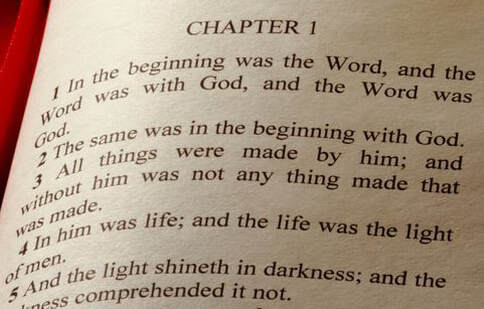Almost nobody you might ask – “who really ultimately was responsible for killing Jesus?” – gets it completely right. If you think I’m going to say we all killed Christ by our sins – please read on, because the full answer is much, much deeper and more meaningful even than that.
Many say the Jews did. Certainly they’re right. They did. Paul and others attest to that (1 Thessalonians 2:14-15). Many say the Romans did. They’re right too – for it was the Roman government that had him nailed to the cross and who thrust the spear into his side. Still others say that we ALL killed Jesus of Nazareth. Peter seems to say this to his sorrowful Pentecost audience (Acts 2:36-37), and later to a group in Acts 3:12-17, see especially verse 15. How did we ALL kill the Christ? By our sins, which required his atoning death. All these answers are correct, but there’s one more answer to who really killed the Christ.
What was the Messiah? One answer is what John the Baptizer said: “Behold the Lamb of God who takes away the sin of the world” (John 1:29). Later, the apostle Paul referred to Christ as “our Passover Lamb” (1 Cor. 5:7), so the Passover and days of Unleavened Bread of Exodus 12 pointed to the REAL Lamb – the Lamb of God.
Who was responsible in Exodus 12 to select a lamb without blemish and to have a lamb ready on Passover and to kill that lamb for their family in that original Passover service? It was the FATHER of the household who presented and killed the selected lamb (Exodus 12:3).
So when we read that Jesus was called “the Lamb of GOD,” what was John referring to? God the Father had pre-selected the Word, who became flesh and became the Son of God (John 1:14) to be his Lamb. In fact, Jesus was as good as already slain from before the foundation of the world (Revelation 13:8; 1 Peter 1:18-20). ALL the Passover lambs of Exodus 12 and afterwards, all pointed to the future fulfillment of Messiah, the Lamb of God.
God the Father presented a lamb for his household just as the Israelite fathers had to present one lamb or kid goat per household. (Exodus 12:3). The Lamb being offered had to be enough for the household. ALL who wish to be part of the Household of God will partake of Father’s lamb. So who really and ultimately had to kill the Lamb of God? Who alone truly could do it? Yeshua gave another clue during his final Passover, quoting from Zechariah 13:7. Then Jesus said to them, “All of you will be made to stumble because of Me this night, for it is written: ’I will strike the Shepherd, and the sheep of the flock will be scattered.’ (Matthew 26:31).
Who is the “I” in “I will strike the Shepherd”? Who was going to strike the Shepherd? Remember that Christ was the Word who was God and WITH God (John 1:1-2). So let’s see what the original source – Zechariah13:7 – says, and notice how God calls that Shepherd “the Man who is my COMPANION.” it is God who is speaking. Jesus is quoted in Matthew 26:31 as saying “I will strike the Shepherd” – but he is quoting GOD speaking in Zechariah 13:7. So GOD will strike the Shepherd. Who is the Shepherd? Jesus himself says HE is the good shepherd (John 10:11); the Shepherd who would be struck by God.
John 3:16 tells us that GOD so loved the world that HE gave his one and only Son so that those who believe in him would not perish but have everlasting life. God the Father saw that by sacrificing his only Son for a time he would be opening the door to potentially billions more sons and daughters (2 Corinthians 6:18). And Jesus was part of that plan from the beginning (John 10:17-18).
Notice what Isaiah tells us about that: “Surely He has borne our griefs and carried our sorrows; Yet we esteemed Him STRICKEN, SMITTEN BY GOD, and afflicted…. All we like sheep have gone astray, We have turned, every one, to his own way; And the Lord has laid on Him the iniquity of us all.” (Isaiah 53:4,6). Isaiah continues: “Yet it PLEASED the Lord to bruise him; HE has put him to grief. When YOU make His soul an offering for sin ... My righteous Servant shall justify many; For he shall bear their iniquities” (Isaiah 53:10-11). Did you catch that? HE – God – put his Servant-Son to grief. I know it’s easier to blame the Jews or the Romans, but that misses the point of the entire Passover lamb symbolism! Isaiah 53:10 says GOD made his Son’s soul an offering for sin in his love for all of us! Paul certainly understood this – that God “DID NOT SPARE HIS OWN SON, BUT DELIVERED HIM UP FOR US ALL” (Romans 8:32).
So ultimately the One who killed Christ was the head of the Father’s house – God our Father. The blood of the Lamb of God, whom the FATHER slew for his household, protects us from the Destroyer, saves us from the penalty of death that we earned, and covers us by his grace. That is what the Scriptures say – that GOD gave his only begotten son as His LAMB for any and all who believe and who become a part of his household.
* This post is condensed from the author's website (see https://tinyurl.com/348rbh8a) and is used here by kind permission.





















 RSS Feed
RSS Feed
